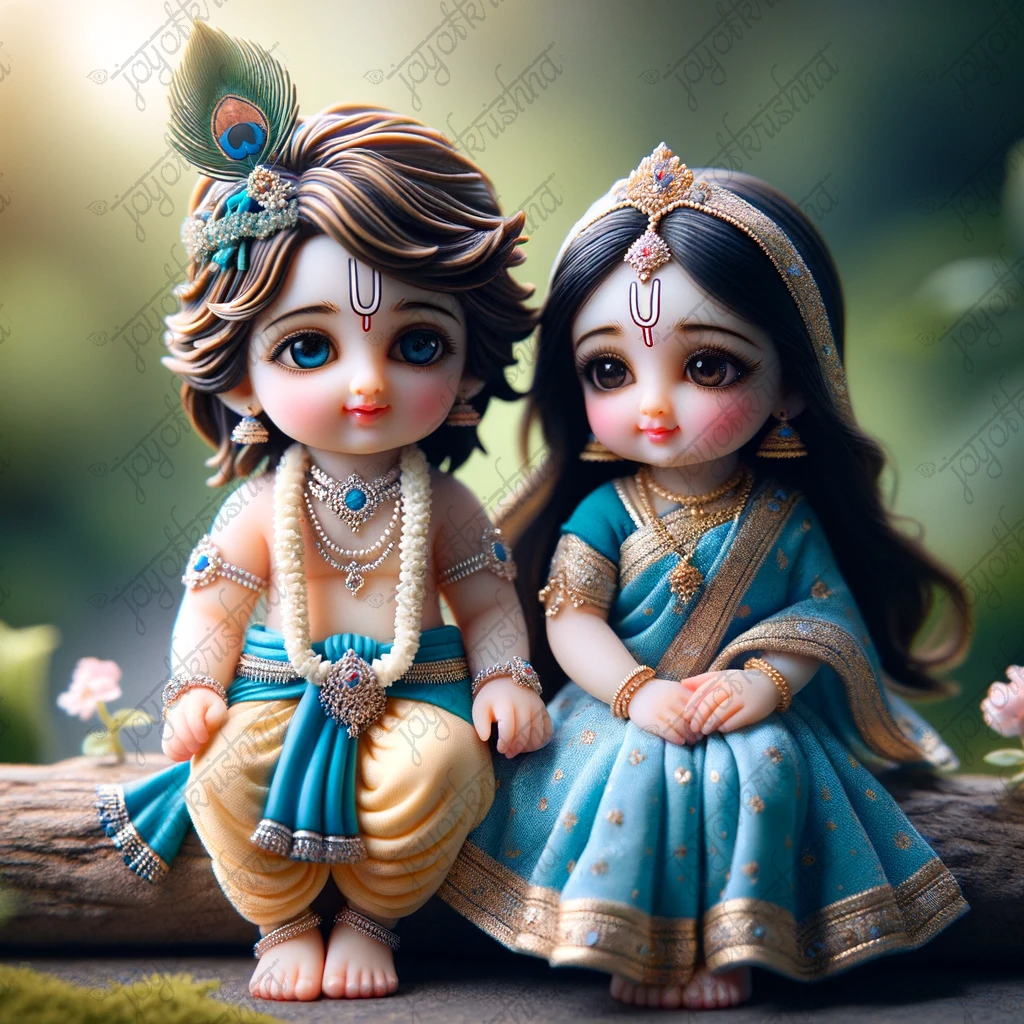
In the realm of Hindu mythology, one deity stands out for his enigmatic and multifaceted personality – Lord Krishna, the eighth avatar of Lord Vishnu. His life is a tapestry woven with threads of divine intervention, romance, politics, and spirituality, making him one of the most revered and beloved gods in Hinduism. Born in the city of Mathura, Krishna’s arrival on this earth was marked by a dramatic turn of events, as his uncle King Kansa, driven by a prophecy that foretold his demise at the hands of his nephew, sought to kill him. However, fate had other plans, and Krishna was smuggled out of the city to the village of Gokul, where he was raised by his foster parents, Nanda and Yashoda. As a child, Krishna’s divinity was evident in his mischievous antics and miraculous feats, which have been immortalized in Hindu scriptures and art. His affinity for butter and milk has become legendary, as has his iconic flute, whose melodies could mesmerize and enthrall all who listened. As Krishna grew in age and wisdom, his role in the epic Mahabharata became more pronounced, as he took on the mantle of a spiritual guide, philosopher, and warrior. His teachings, as enshrined in the Bhagavad Gita, continue to inspire and guide seekers of truth to this day. The Gita, which is a dialogue between Krishna and his friend and disciple Arjuna, grapples with fundamental questions of existence, duty, and morality, offering insights that are both profound and practical. One of the most fascinating aspects of Krishna’s personality is his complex and multifaceted nature, which defies categorization. He is at once a god, a king, a lover, a friend, and a spiritual mentor, embodying the contradictions and paradoxes of human existence. His relationships with others are equally multifaceted, whether it is his deep bond with his mother Yashoda, his romantic trysts with Radha, or his fraternal affection for Arjuna. Krishna’s legacy extends far beyond the confines of Hinduism, as his teachings and message of love, compassion, and self-realization have inspired countless people across cultures and centuries. In the world of art and literature, Krishna has been a timeless source of inspiration, with his image appearing in countless paintings, sculptures, and literary works. His iconic form, with its serene smile, lotus eyes, and flowing locks, has become an instantly recognizable symbol of divinity and spirituality. In the realm of music and dance, Krishna’s flute has been immortalized in countless compositions and choreographies, evoking the ecstasy and longing that his melodies evoke. As a cultural icon, Krishna continues to captivate and inspire people around the world, embodying the eternal and universal themes of love, wisdom, and transcendence.